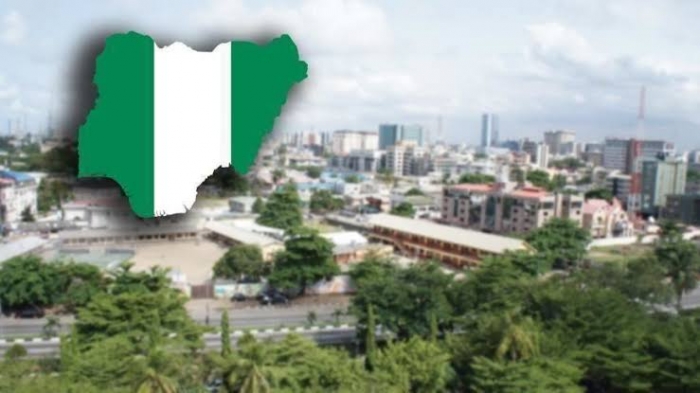Despite efforts by the government to attract more foreign investors into the oil and gas sector, the nation’s foreign capital investments in the industry nosedived from $720m in 2016 to $3.64m in the entire 2023.
The country also recorded no foreign capital investment in the first quarter of 2024, a report by the National Bureau of Statistics showed.
The report indicated that out of the $3.38bn capital importation into Nigeria in the first three months of 2024, the petroleum industry got nothing.
Capital importation is the inflow of foreign capital into a country, typically in the form of investments, loans, or other forms of financial resources.
This can include Foreign Direct Investment, and portfolio investment such as investments in a country’s financial assets like stocks, bonds, and securities.
It can also be in the form of short-term loans, deposits, or other forms of temporary capital inflows.
The petroleum sector’s zero capital importation in Q1 2024 indicates that no foreign capital was invested in the sector during that period, which could potentially impact the sector’s development and growth.
Even as the total capital importation went up by 198.06 per cent to $3.38bn compared to $1.13bn recorded in Q1 2023, the sector that gives the highest revenue to the country attracted no foreign investment within the period under review.
The banking sector recorded the highest inflow with $2.07bn, representing 61.24 per cent of total capital imported in Q1 2024, followed by the trading sector, valued at $494.93m (14.66 per cent), and the production/manufacturing sector with $191.92m (5.68 per cent).
The marketing, consultancy, and construction sectors received inflows valued at $60,000, $300,000, and $610,000, respectively, but the oil and gas sector recorded no investment.
Our correspondent gathered that over the years, foreign capital investments in the petroleum sector have been declining.
In the first quarter of 2023, the petroleum sector recorded $750,000 in capital importation, but nothing was recorded in the second quarter.
The sector got $850,000 in capital importation in the third quarter, while it made $2.04m in the last quarter.
In total, the sector attracted $3.64m as capital importation into Africa’s largest oil-producing country in the whole of 2023.
Our correspondent reports that the petroleum sector recorded $6.37m as capital importation in 2022, this was below what was recorded in just one quarter of 2021.
It was gathered from the NBS that in Q1 2021, the nation gathered a sum of $57.25m as capital importation; $340,000 in Q2 2021; $940,000 in Q3; and $32.31m in Q4. In total, $101m was the capital importation for the year 2021.
Similarly, the NBS revealed that the sector garnered $208m in capital importation in 2014 and $29.76m in 2015.
It peaked in 2016 to as high as $720m. The nation’s oil sector in 2017 saw $331.36m as foreign capital investment. The sector got $133.51m in 2018; $216.23m in 2019 and $53.51m in 2020.
Experts react
A professor, Wumi Iledare, said the sharp drop in foreign capital investment in the oil sector is expected because investors are not convinced that the Petroleum Industry Act has changed the country’s style of doing business.
Iledare said the PIA, which is supposed to create incentives, was implemented wrongly by the previous administration of Muhammadu Buhari. He said the incumbent President Bola Tinubu is yet to look at the errors for possible corrections.
“This is expected. Investors are more concerned about the certainty of doing business in an environment. This also has to do with the way the PIA is being implemented. The PIA is expected to create incentives, but they started the implementation wrongly. That is why the PIA, in my opinion, is not doing what it is expected to do.
“So, what investors see in Nigeria is ‘business as usual’ because of the way the PIA is being implemented; and the new government did not sit down to look at the errors of the past administration in the implementation of the PIA. It continued with the status quo,” Iledare said.
The energy expert called for a separation of roles between the NNPC and the regulators, stressing that the NNPC is supposed to be a player and not a government agency.
“Until you can convince investors that it is not business as usual and you can let them see that the governance is not fluid. If you look at the PIA, there is a separation of roles between NNPC, the regulators, and the Minister of Petroleum who is to drive the policy framework that creates stability in the governance.
“NNPC is not representing the government per se because it is a player in the industry, and if they (investors) see the NNPC as people driving the policy of the industry, then it is going to send the wrong signal. There is supposed to be a clear separation of roles; the NNPC is supposed to be commercial and not necessarily an agency of the Federal Government driving the policy. The regulators should be seen to be fair and not biased towards the government,” he advised.
NNPC Group Chief Executive Officer, Mele Kyari, has repeatedly blamed the lack of investments in the oil and gas sector on the unrelenting activities of oil thieves and vandals.
During a meeting with the Economic and Financial Crimes Commission’s Chairman, Ola Olukoyede, in March, Kyari said, “When we say illegal connections, they are not invisible things, they are big pipes that require some level of expertise to be installed. Some of them are of the same size as the trunk line itself. No one would produce crude oil knowing full well that it is not going to get to the terminal. That is why nobody is putting money into the business. So, you can’t grow production.”
“I believe, personally, that the very purpose of your commission is to curtail economic crimes, and there is no bigger economic crime of this scale anywhere else than what is happening in this area,” the GCEO lamented.
Punch

































































